2018 Audi RS6 Avant Performance review, test drive
The sporty RS6 Avant gets the Performance tag and so it goes faster still. But is it worth the premium?
Published on Aug 17, 2018 06:00:00 AM
32,285 Views
Follow us on
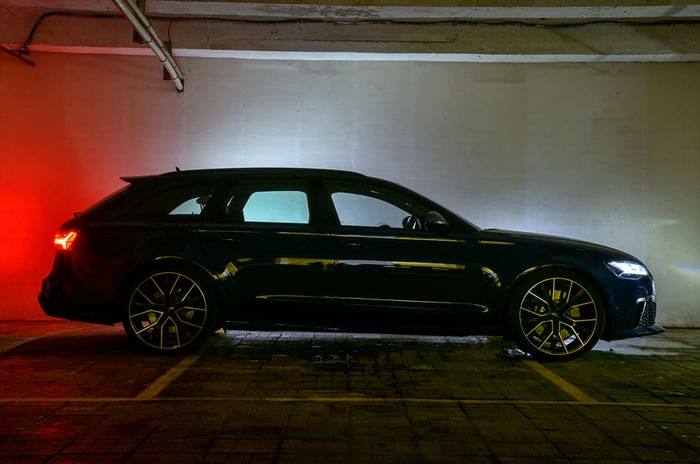
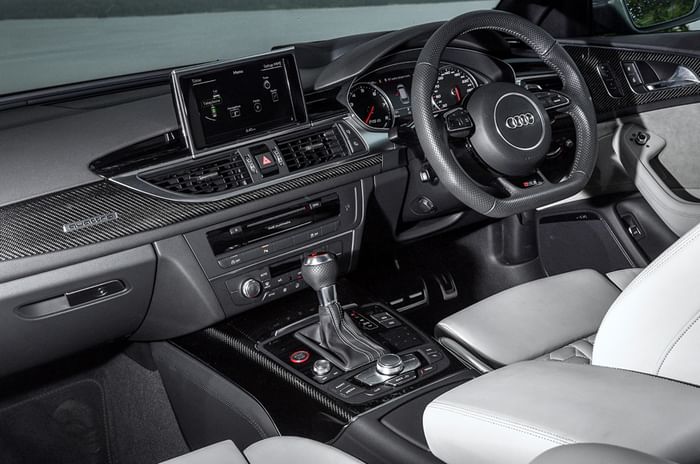
In Audi speak, Avant indicates Estate or Station Wagon and 'RS' means fun. And then you have Performance, which means the car is wilder still. Consider this: with 560hp and a claimed 0-100kph time of 3.9sec, the standard RS6 is definitely supercar quick. But on the Performance version, the engine is wound up further still to 605hp and the claimed 0-100kph time drops to 3.7sec. Given the already ballistic performance of the regular car, this may seem like just a smidgen more, but there are those who simply must have it all.
Along with the bump in engine power, the Performance version also gets 21-inch tyres as standard (optional on the regular car). The rest, though, is the same as what you’d find on the regular RS6, and this brings me to another fact – this is the older generation of the A6. The new fifth-generation A6 has recently been released globally, but, so far, the RS6 still runs on the older fourth-gen car.
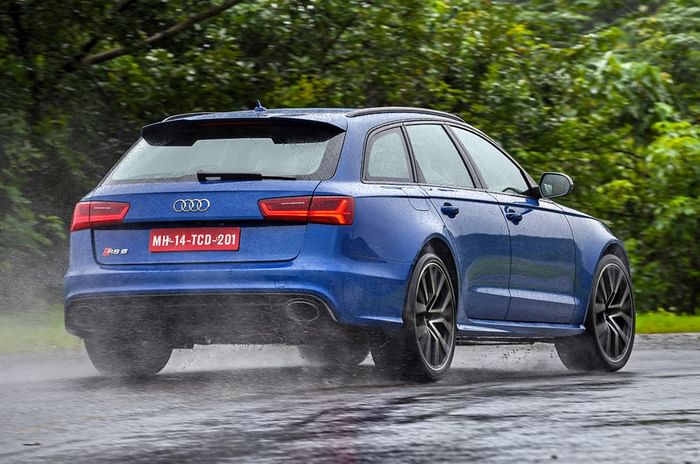
Having driven the new-generation A6 sedan, the interiors of the RS6 did feel wanting in a few areas, notably the lack of Android Auto and Apple CarPlay as well as Audi’s Virtual Cockpit. The interiors still follow the older, more rounded style rather than the new edgy design, and in the day and age of integrated screens, the RS6’ retractable screen is old school or retro-cool. That aside, the interiors are quite special; there’s a nice, chunky flat-bottomed steering wheel and a generous helping of carbon-fibre bits around the dash. Feature-wise, the cabin is well appointed with four-zone climate control, memory seats and Audi’s MMI infotainment system. Being an estate, the RS6 does deliver in terms of space too. The front seats have deep side bolstering and are comfortable and wide – perhaps a bit too wide for my narrow frame – while the rear offers sufficient room too, but only for two – the middle passenger has a massively high centre tunnel to contend with and a seat base that’s shaped more for the outer passengers' comfort. At 565 litres, the boot is sufficiently large to hold luggage for weekend trips.
| Audi RS6 Avant Price, Mileage, Specifications, Features and Variants | |
|---|---|
| Brand | Audi |
| Model Name | RS6 Avant |
| Audi RS6 Avant Price | NA |
| Audi RS6 Avant Range/Mileage | NA |
| Audi RS6 Avant Specifications | | doors | seats View All Specs |
| Audi RS6 Avant Features | headlight | display | airbags View All Features |
| Audi RS6 Avant Variants | View All Variants |
In terms of styling, the RS6 does look the business; it’s clearly an estate, but it would be hard to mistake this for a regular wagon. The deep blue paint, the massive tyres shod on spider-like alloys, an aggressive bumper with wide intakes and a large rear central diffuser drew attention wherever I went. The stance is nice, wide and low adding to the car's sporty appeal.
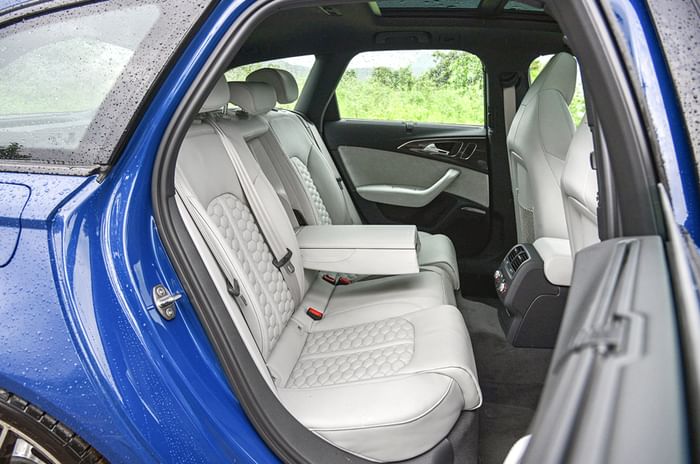
What’s it like to drive?
So let’s begin with the fact that this is a four-door station wagon, and so, yes, there is a Comfort mode where things are quite docile and it’s easy to potter around town in. Under certain situations, there is a low resonance that feels like the car is in too high a gear, but, for the most part, it works just fine.
Then, of course, there’s a Dynamic mode and a Sport mode for the gearbox, and this is where everything goes simply ballistic – the engine's turned up, the gearbox is super quick, and the exhaust is nice and vocal. If Tesla hadn’t used the phrase Ludicrous mode, I would definitely recommend Audi use it for the RS6; it's simply crazy! A two-tonne estate clocking a 3.7sec time for the 100kph dash is just astounding, and like I said earlier, that’s proper supercar quick. What’s also astonishing is that the power is pretty much always on tap even at three-digit speeds. Put your foot down and the car simply hurls forward; it’s so addictive that I found myself doing this again and again for no reason whatsoever – well, actually, fun is a good enough reason.
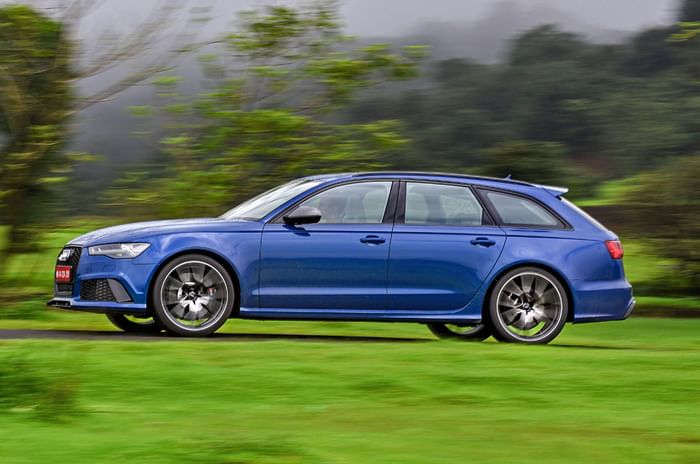
There is a sensible side to the engine too. The 4.0-litre V8 twin-turbo TFSI unit also features the fuel- saving, cylinder-on-demand technology that shuts down one bank of cylinders during steady coasting. It’s very non-intrusive and you really can’t tell when the cylinders shut down or kick in from behind the wheel.
There is a flip side, however. In Dynamic mode, the dampers do firm up but they get too stiff with very little compliance, and, as a result, the ride gets very bouncy – on anything other than a billiard top surface, you’ll feel like a bobblehead toy. It does get quite tiring. I found the best setup was to have everything is Dynamic mode with the dampers set to Comfort. There is more body roll here, but I found it to be less annoying. The steering too isn’t the best out there. In Comfort, it’s pretty light but devoid of real feel, while in Dynamic, it does weight up, but still isn’t what you’d expect from a performance-oriented car.
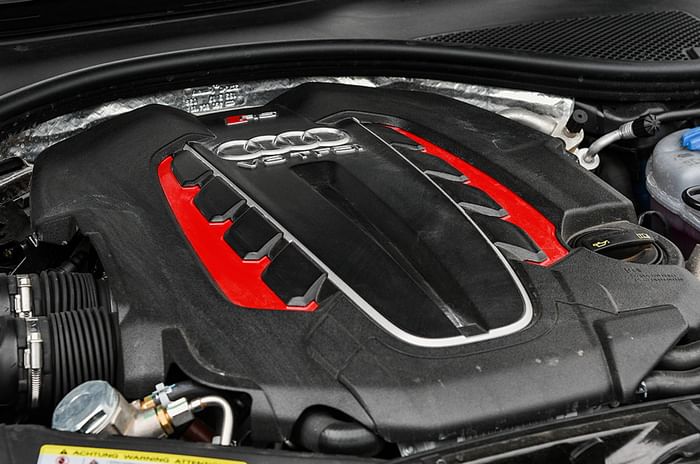
Typical of many Quattro cars, around bends, the RS6 just grips and grips like its cornering on rails, no doubt, the four fat 285 section tyres playing a big part. But the trouble is there’s no playfulness to it and the feel is all very neutral. All the same, while I didn’t find the feel very entertaining, going around bends at silly speeds in a massive car was entertaining in its own way.
Should I buy one?
The RS6 Performance is fast, massively so, but so is the regular RS6, and at Rs 1.65 crore (ex-showroom), the Performance version costs Rs 30 lakh over the regular RS6. So it’s really down to how much you value those extra 45 horses, and, of course, the bragging rights of having the more powerful RS6.
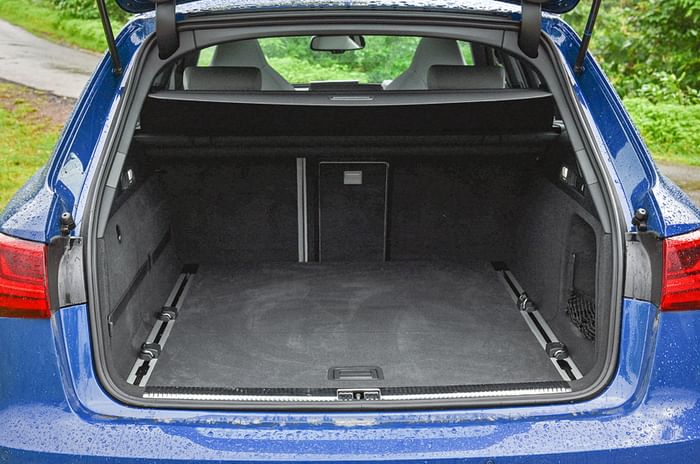
So, apart from the Performance and the regular aspect of the RS6, what of the Avant itself? It might be an older-gen car, but it still boasts a mighty V8, a sub-4sec time to 100kph, all while carrying four people and their luggage, in absolute comfort. And then there’s the appeal. A performance station wagon isn’t going to be everyone’s cup of tea, and therein lies the charm – it offers you quite a bit of exclusivity and it makes a statement, one that says you're different from the rest and you don’t follow the norm, and that is quite a big draw for some.
Tech Specs 
Copyright (c) Autocar India. All rights reserved.





 Price
Price Engine
Engine Transmission
Transmission Efficiency
Efficiency Acceleration
Acceleration Body
Body Dimensions
Dimensions
Comments
Member Login
Personal Details
No comments yet. Be the first to comment.